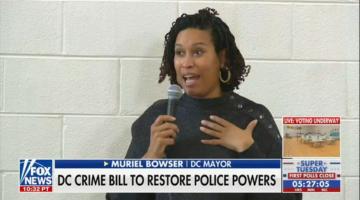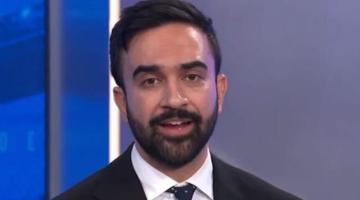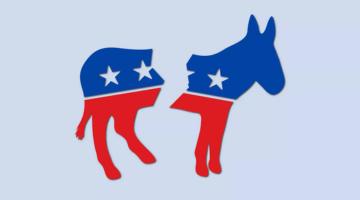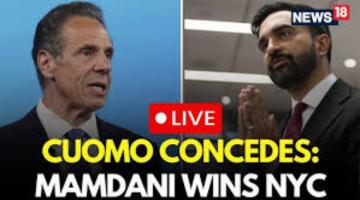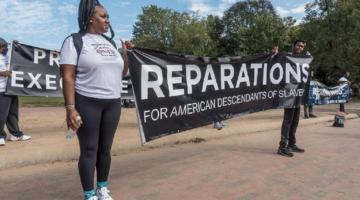On the issues, Bernie Sanders should have won the black vote. But presidential politics isn’t just about issues, it’s about entrenched alliances and relations of power. Without understanding why the most left wing constituency in the US delivers its vote reliably to the most right wing interests in the Democratic party, Bernie wasn’t even knocking on the door of the black vote. He was knocking on the wall, unable to find the door.
A Fusion article by Terrell Jermaine Starr titled “How Bernie Sanders Lost Black Voters” purports to explain why the Sanders campaign and its black operatives failed to make a dent in Hillary Clinton’s overwhelming black vote. The article blames the Sanders campaign for not throwing enough financial resources at “black outreach.” It also faults the candidate and his top advisors for not focusing clearly and publicly “...on the problems so many black voters wanted addressed: police brutality, white supremacy and the ways in which economic inequality is inextricable from race...”
While both those factors are significant --- the campaign certainly could have thrown more money and staff into “black outreach” and the candidate should have spoken more clearly and persuasively on issues important to African Americans they don’t begin to explain Hillary’s hold on the black vote or how it might have been shaken.
To unlock that particular door, the Sanders campaign or Mr. Starr would have to at least look for the key. They’d have to explore why how Hillary got that support, and just what were the power relationships which make that support possible. They’d have to ask why the most right wing corporate Democrat has the most left wing constituency in the Democratic party on lockdown.
They didn’t. Instead of asking those questions, the Sanders campaign and Mr. Starr’s Fusion article treated the black community as a kind of united corporate whole with no perceptible internal divisions or contradictions, all of it potentially winnable by just putting the right message in front of the right audiences, or throwing enough staff and money at the problem.
That was Sanders’ mistake and it’s the error of the Fusion article as well. Sanders didn’t lose the black vote, he never had it. Both the Sanders campaign and Mr. Starr seem to assume some kind of level playing field exists or existed in which they had the opportunity to persuade the black vote away from those who had it, without the bother of questioning how and why their opponents DID have it, without mapping and taking into account the relationships of power and dependency which tie almost the entire cohort of black politicians, church leaders and traditional black leadership to right wing corporate Democrats.
The vision of “the black community” as a united, undifferentiated whole comes from the era of struggle against Jim Crow, from the time of Booker T. Washington, and it persists to this day. It’s a construct Adolph Reed calls the brokerage model of leadership, in which a class of anointed black leaders is thrown up – preachers, politicians, business figures –-whose job for the last hundred years has been to represent the interests of all of us, to be the spokespeople for our unified demands, the brokers on our behalf in the halls of power.
Needless to say, the class composition of this leadership cohort is NOT the same class as the locked out and locked up, and the “unified demands” presented on behalf of us all by this kind of leadership often to don't reflect the interest of blacks threatened by gentrification, or African American workers precariously employed and unemployed, or those of the young, the female or the queer. This time honored vision of black leadership must always demand “unity” to protect its own legitimacy. It must also aggressively suppress divergent points of view in the name of the “black unity” which is the excuse for the leaders’ existence. As Reed points out, it’s a fundamentally top-down and anti-democratic model of politics and political action, one that places no particular value on bottom-up organizing, nor upon broad democratic participation in decision making, or of accountability of leadership to followers.
The utterly unaccountable nature of traditional black leadership is why the Congressional Black Caucus mostly endorsed the militarization of cops, why it backs the arming and financing of apartheid in Israel, and doesn’t stand against gentrification or school privatization or the militarization of Africa, why it did not muster a peep of objection to the displacement of a quarter million black people from New Orleans and the Gulf after Katrina, or vote against the bailout of criminal banksters who sold predatory mortgages to black homeowners, stripping black America of 90% of family wealth in the 2007-08 housing meltdown.
Without mapping out, acknowledging and questioning the lineup of forces arrayed against it, organizers of the Sanders campaign never even knocked on the door of black support. They were knocking on the black wall, unable to find the door. Behind that wall however, the black political class was able to produce an overwhelming black vote for Hillary, in keeping with its alliance to the most right wing and corporate dominated sectors of that party.
The Sanders campaign is over now, except for the efforts of staffers to herd followers, activists and contributors behind Hillary Clinton. The campaign of Jill Stein and the Green Party is now the only one that even wants to build support among African Americans. To do that, Greens will have to do what the Sanders campaign was unwilling and unable to do. They and their black supporters will have to interrogate black allegiance to an entrenched black leadership that serves only itself. They’ll have to find and cultivate relationships with forces not tied to those leaders, and develop stands on issues with them.
On issues, Jill and the Greens will have to do more of what Sanders didn’t do.
They’ll have to get far out ahead of what Democrats are talking in the area of responses to racist policing, way beyond body cameras, sensitivity training and proceduralism, and into demanding the abolition of “police bills of rights” and police contract provisions that shield cops from effective investigations. They’ll have to demand effective local and democratic control over policing and police practices, something that exists nowhere in the US.
They’ll have to vigorously denounce the drive to privatize education as a thing that hits black and brown communities first and hardest, a project that’s already cost tens of thousands of qualified experienced black teachers their careers, imperiled the educational future of millions, and destabilized hundreds of black communities nationwide, all with the compliance of large part of the existing black political elite. They’ll have to find ways to help boost and popularize the opt out movement in black communities, which right now is the ONLY effective resistance to the bipartisan policy of corporate education reform.
They’ll have to demand a complete demilitarization of Africa policy, and an embargo on weapons, resupply and military training not just to the Middle East but to Africa as well, the frontier for the next round of wars and the location of dozens of drone bases and scores of US military outposts.
They will have to point out again and again that forgiveness of student loans will affect proportionately more black women than anybody else, because black women are the most likely to have availed themselves of predatory student loans in the hopes of bettering their chances in the job market.
And most especially, Jill’s black supporters will have to openly break with traditional black leadership and their top-down methods, and openly question their right wing alliances. Jill Stein rightly says that you cannot build a revolution inside a counter revolutionary party. You also cannot expect a counter revolutionary elite to support your revolution. It’s not like any black mayors, CBC members or prominent black Democrats or black megachurch preachers are about to go Green.
To shake loose a good percentage of the black vote, Sanders would have had to go to war against black congressmen, black mayors and the entire black political establishment, all of the Democrats, in a Democratic primary election. That was never going to happen. Not ever, not insde the Democratic party. Such a campaign can only be waged OUTSIDE the Democratic party and outside the bonds of fake black unity which prevail inside it.
In the long term a Green Party can ONLY grow if it sinks deep roots in the black and brown communities which the Democratic party now regards as its “base vote,” its captive constituency. The fight to transform black leadership will certainly outlast the few remaining weeks of this political campaign. But the remaining actors must choose a side in that struggle. Jill and the Greens can ignore that need for transforming black leadership, or they can take part in it.
I'm betting that, within the limited time frame of this campaign, the people running Jill Stein's campaign will find a way to do exactly that. On a longer time horizon I am betting that the Green Party will be able to transform itself into a more internally accountble and small-d democratic organization that can build effective political campaigns and a permanent presense in black constituencies. Some of us are on that case.
Bruce A. Dixon is managing editor at Black Agenda Report and a co-chair of the Georgia Green Party. He lives and works near Marietta GA and can be reached via email at bruce.dixon@blackagendareport.com.

